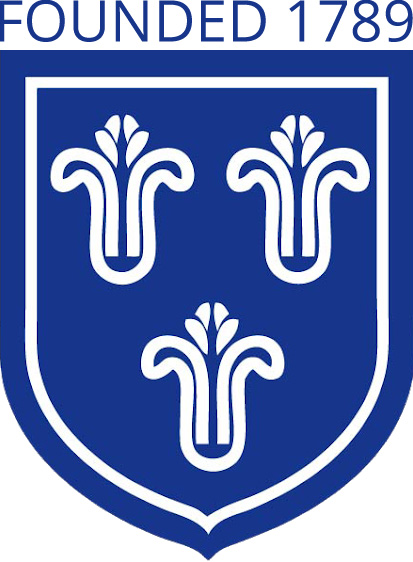Equality and Diversity

Black History Month - Whole-School Display.
Equality
We recognise our duty and responsibility to establish equality for all pupils, staff, other members of the school community and service users.
We understand that it is against the law to discriminate against anyone because of: age; gender reassignment; being married or in a civil partnership; being pregnant or on maternity leave; disability; race including colour, nationality, ethnic or national origin; religion or belief; sex; sexual orientation.
In addition to the protected characteristics outlined above, we have further policies and guidelines which also support those with SENd or disadvantage to flourish.
Equality Information & Objectives
1. Aims
St Mary’s Church of England Primary School aims to meet its obligations under the public sector equality duty by having due regard to the need to:
· Eliminate discrimination and other conduct that is prohibited by the Equality Act 2010
· Advance equality of opportunity between people who share a protected characteristic and people who do not share it
· Foster good relations across all characteristics – between people who share a protected characteristic and people who do not share it
2. Legislation and guidance
Our Equality Policy meets the requirements under the following legislation:
· The Equality Act 2010, which introduced the public sector equality duty and protects people from discrimination
· The Equality Act 2010 (Specific Duties) Regulations 2011, which require schools to publish information to demonstrate how they are complying with the public sector equality duty and to publish equality objectives
This document is also based on Department for Education (DfE) guidance: The Equality Act 2010 and schools.
3. Roles and responsibilities
The governing board will:
· Ensure that the equality information and objectives as set out in this statement are published and communicated throughout the school, including to staff, pupils and parents, and that they are reviewed and updated at least once every four years
· Delegate responsibility for monitoring the achievement of the objectives on a daily basis to the Executive Head teacher and/or Head of School.
The Executive Headteacher/Headteacher will:
· Promote knowledge and understanding of the equality objectives amongst staff and pupils
· Monitor success in achieving the objectives and report back to governors
All school staff are expected to have regard to this document and to work to achieve the objectives as set out in section 8.
4. Eliminating discrimination
The school is aware of its obligations under the Equality Act 2010 and complies with non-discrimination provisions. Where relevant, our policies include reference to the importance of avoiding discrimination and other prohibited conduct.
Staff and governors are regularly reminded of their responsibilities under the Equality Act, for example during meetings. Where this has been discussed during a meeting it is recorded in the meeting minutes. The school delivered annual equality training to all staff.
5. Advancing equality of opportunity
As set out in the DfE guidance on the Equality Act, the school aims to advance equality of opportunity by:
· Removing or minimising disadvantages suffered by people which are connected to a particular characteristic they have (e.g. pupils with disabilities, or gay pupils who are being subjected to homophobic bullying)
· Taking steps to meet the particular needs of people who have a particular characteristic (e.g. enabling Muslim pupils to pray at prescribed times)
· Encouraging people who have a particular characteristic to participate fully in any activities (e.g. encouraging all pupils to be involved in the full range of school clubs)
· Analyse data to determine strengths and areas for improvement, implement actions in response
· Make evidence available identifying improvements for specific groups (e.g. declines in incidents of homophobic or transphobic bullying)
· Analyse data about any issues associated with particular protected characteristics, identifying any issues which could affect our own pupils
6. Fostering good relations
The school aims to foster good relations between those who share a protected characteristic and those who do not share it by:
· Promoting tolerance, friendship and understanding of a range of religions and cultures through different aspects of our curriculum. This includes teaching in RE, citizenship and personal, social, health and economic (PSHE) education, but also activities in other curriculum areas. For example, as part of teaching and learning in English/reading, pupils will be introduced to literature from a range of cultures
· Holding assemblies/collective worship dealing with relevant issues. Pupils will be encouraged to take a lead in such assemblies/collective worship and we will also invite external speakers to contribute
· Working with our local community. This includes inviting leaders of local faith groups to speak at assemblies/collective worship, and organising school trips and activities based around the local community
· Ensuring we offer a welcoming and nurturing environment to all our pupils and their families irrespective of religion. We welcome families of all religions and those with no religion to our Church of England Primary School
· Encouraging and implementing initiatives to deal with tensions between different groups of pupils within the school. For example, our School Council has representatives from different year groups and is formed of pupils from a range of backgrounds. All pupils are encouraged to participate in the school’s activities, such as sports clubs.
· We have contact with people and groups who have specialist knowledge about particular characteristics, which helps inform and develop our approach
7. Equality considerations in decision-making
The school ensures it has due regard to equality considerations whenever significant decisions are made. The school always considers the impact of significant decisions on particular groups. For example, when a school trip or activity is being planned, the school considers whether the trip:
· Cuts across any religious holidays
· Is accessible to pupils with disabilities
· Has equivalent facilities for boys and girls
8. Equality objectives
- To promote the awareness between children, staff and parents of the protected characteristics as set out in the Equality Act - through an engaging PSHE curriculum and alongside our St Mary’s C of E (Aided) Primary School Collective Worship.
- To foster good relations between people who share a protected characteristic and those who do not - all staff to promote healthy friendships and record incidents of prejudice related bullying.
- To robustly challenge inappropriate language and behaviour amongst any group within the school and community; taking any opportunity to educate - build/continue to develop an environment where everybody feels safe and safe to challenge others where their behaviour falls short of what is expected within St Mary’s CofE (Aided) Primary School and the wider community.
- To diminish the difference in attainment and achievement of pupils, especially those with EAL.
9. Monitoring arrangements
· The Executive Headteacher/Headteacher will update the equality information we publish, annually.
· Our Policy will be reviewed by Governing Board at least every 4 years.
10. Links with other policies or documents
- Accessibility Policy
- SEND Policy
- Curriculum Policy
- PSHE Policy
- RE and Collective Worship Policies
